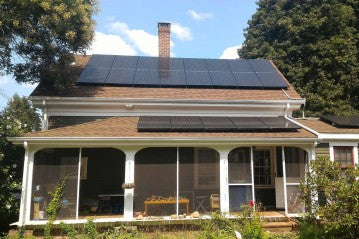
Solar energy, a sustainable and renewable power source harnessed from the sun's rays, has been gaining widespread popularity in recent years. As environmentally-conscious customers seek cleaner alternatives to traditional energy sources, solar energy emerges as a reliable and accessible option. In this article, we will explore five key benefits of solar energy for both the environment and you, the consumer, as you embark on the journey of adopting solar energy and its related products.
1. Sustainable and Good for the Environment
One of the most significant advantages of solar energy is its environmentally-friendly nature. Unlike fossil fuels, solar energy produces zero emissions, making it a clean and green energy solution. By opting for solar energy, you contribute to reducing your carbon footprint, which plays a crucial role in combating climate change and global warming. The use of solar energy significantly decreases the demand for non-renewable resources, ensuring a more sustainable future for generations to come.
Harnessing solar power also helps in the preservation of natural habitats and biodiversity. Traditional energy sources like coal and oil often involve mining and drilling, which can disrupt ecosystems and harm wildlife. Solar energy, on the other hand, has minimal impact on the environment during its production and consumption phases, promoting a healthier and more balanced ecosystem.
2. Cost-effectiveness
Solar energy proves to be a cost-effective solution in the long run. While the initial investment may seem significant, the return on investment over time makes it a smart financial decision. After the installation of solar panels or solar-powered systems, the energy generated is essentially free, significantly reducing or even eliminating electricity bills. In some cases, excess energy can be sold back to the grid, providing additional income through net metering programs.
Moreover, with advancements in technology and increased adoption, the cost of solar panels and related equipment has decreased in recent years, making solar energy more affordable and accessible to customers. Additionally, various financial incentives, tax credits, and rebates offered by governments and utility companies further contribute to reducing the overall cost of installing solar energy systems.
3. Great Reliability and Accessibility
Solar energy enjoys a distinct advantage over other energy sources due to its widespread availability. The sun is a near-universal resource, accessible to virtually all locations on Earth, regardless of how remote they may be. This accessibility ensures that even off-grid areas or regions with limited access to traditional electricity sources can still benefit from solar energy.
Furthermore, solar energy systems require minimal maintenance and have a long lifespan, providing reliable energy for decades. Unlike fossil fuel power plants that are susceptible to price fluctuations and supply chain disruptions, solar energy systems provide a stable and consistent energy source. This reliability makes solar energy an ideal choice for homeowners, businesses, and communities seeking a steady and dependable energy solution.
4. Enhances Grid Security
Solar energy contributes to enhancing the security and reliability of the overall energy grid. As more individuals and businesses adopt solar power, the decentralization of energy production occurs. This decentralization reduces the reliance on a few large power plants, which can be vulnerable to natural disasters, cyber-attacks, or equipment failures.
In the event of power outages caused by extreme weather or emergencies, solar energy systems equipped with energy storage solutions, such as batteries, can continue to provide electricity to homes and businesses. This ability to function independently from the main grid enhances energy security and ensures a more resilient power supply during challenging times.
5. Increases Property Value
For homeowners, installing solar energy systems can lead to a substantial increase in property value. Studies have shown that solar-equipped homes often sell at higher prices and spend less time on the market compared to homes relying solely on conventional energy sources. The appeal of lower or non-existent electricity bills, along with the environmental benefits, attracts potential buyers, making solar-powered properties a sought-after choice in the real estate market.
Moreover, as sustainability and environmental consciousness become more significant factors for buyers, having solar panels on your property can be a crucial selling point. Potential homeowners are increasingly considering the long-term savings and eco-friendly features of a property when making their purchasing decisions.
Conclusion
In conclusion, adopting solar energy and related products offers numerous benefits to both the environment and individual customers. Its sustainable and clean nature helps combat climate change and reduces dependence on non-renewable resources. The cost-effectiveness of solar energy ensures long-term savings on electricity bills while contributing to a greener future.
With the accessibility and reliability of solar energy, even remote areas can harness the power of the sun, ensuring a stable energy supply for communities worldwide. The decentralization of energy production enhances grid security, making the overall energy system more resilient. Lastly, solar energy systems add value to properties, making them more attractive to potential buyers in a market increasingly driven by environmental consciousness.
By choosing solar energy, you not only contribute to a cleaner environment but also make a smart investment for a sustainable and brighter future. Embrace solar energy today and become a part of the renewable energy revolution, benefiting both the planet and yourself in the process.

0 Kommentare